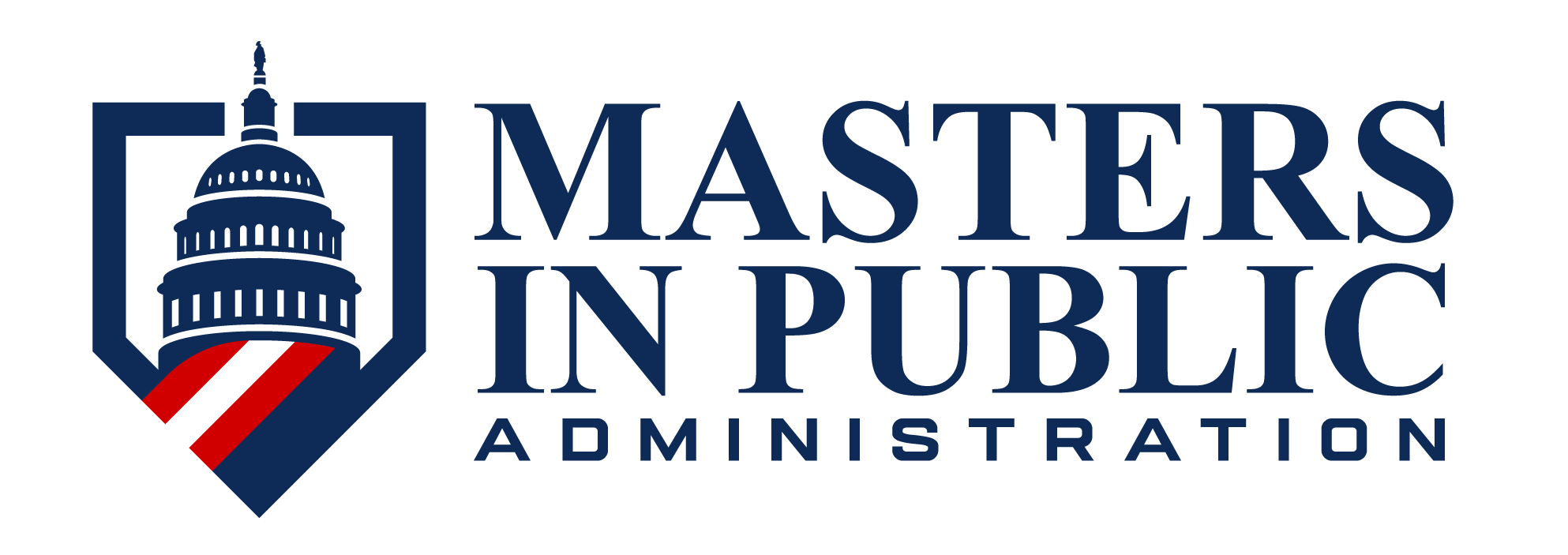Introduction
Virginia’s MPP programs stand out due to their strong connections to policymakers and institutions in Washington, D.C. Schools like the University of Virginia (UVA) and George Mason University (GMU) offer programs that integrate internships, guest lectures, and networking events with influential policy leaders. Students can participate in real-world policy research projects and gain hands-on experience through partnerships with government agencies, nonprofits, and international organizations.
Key State Takeaways:
- Total MPP Programs Statewide: 4
- NASPAA-Accredited Programs: 1
- Annual Resident Tuition Average: $17,000 – $19,000 (PYR)
- Annual Non-Resident Tuition Average: $30,000 – $33,000 (PYR)
- Program Formats Offered: On-campus, hybrid, executive
- Average Starting Salary: $69,000
NASPAA-Accredited MPP Programs in Virginia
NASPAA (Network of Schools of Public Policy, Affairs, and Administration) is the global accrediting body for public policy and administration programs. Accreditation ensures that programs meet high standards in curriculum quality, faculty expertise, and student outcomes. For students in Virginia, choosing a NASPAA-accredited program means receiving an education recognized for its rigor and relevance, boosting their credibility in the competitive job market. There is one school offering an MPP degree accredited by NASPAA in the State of Virginia:
Northeastern University – Arlington
- Arlington, VA.
- 40 Credit Hours
- Campus
Program:
Masters of Public Policy (MPP)
Program Overview:
The MPP at Northeastern University’s School of Public Policy & Urban Affairs is a practice-and-data-driven graduate program designed to equip students with advanced analytical, methodological, and decision-making skills to tackle policy problems in diverse public, nonprofit, and private settings. Located primarily in Boston, with flexible campus options including Arlington and Oakland (and a fully online track), the program emphasizes real-world policy impact, social justice, and adaptability to working professionals.
Unique Components:
- Flexible campus & modality mix. Students may take courses on-campus in Boston, Arlington or Oakland (starting Fall 2025) or fully online; many choose a mix of modalities.
- Strong experiential component (internship or co-op). For those with less than one year of relevant experience, the program requires an internship; an optional paid cooperative education (“co-op”) full-time employment for credit is available.
Key Data Highlights:
- Format: On-campus
- Accreditation: NASPAA, HLC
- Credit Hours: 40
- GRE: Not required
- Tuition: $1,013 (PCH)
- Acceptance Rate: N/A
- Enrollment: N/A
Other Considerations:
- Optional concentrations & certificates. Students may tailor their MPP via optional concentrations such as Healthcare Management & Policy or Sustainability & Climate Change Policy, or pursue certificates like Urban Analytics, Information Ethics, Security & Resilience Studies.
- Strong employment outcomes. The program reports 100% employment for the class of 2021-22, with a median salary for policy analysts from the program around US $75,200 (according to Lightcast) at time of reporting.
Non-Accredited Schools
While the following schools do not have accreditation status with NASPAA, these options are still worth researching. These programs often emphasize interdisciplinary learning, ethical leadership, and regional policy innovation, reflecting Virginia’s unique position at the intersection of state governance and federal policymaking. Students benefit from proximity to Richmond and Washington, D.C., gaining access to influential internships, research centers, and professional networks:
| Institution | Location | Accreditation | Credit Hours | Modality |
|---|---|---|---|---|
| George Mason University | Fairfax, VA | HLC | 39 | Online/On- Campus |
| College of William and Mary | Williamsburg, VA | HLC | 46 | On-Campus |
| University of Virginia | Charlottesville, VA | HLC | 49 | On-Campus |
George Mason University
- Fairfax, VA.
- 40 Credit Hours
- Online + Campus
Program:
Masters of Public Policy (MPP)
Program Overview:
George Mason University’s Master of Public Policy (MPP) program, offered through the Schar School of Policy and Government, prepares students to analyze, design, and implement effective public policies in a complex and rapidly changing world. Located in Arlington, Virginia, just minutes from Washington, D.C., the program offers students unmatched access to federal agencies, think tanks, NGOs, and international organizations. The MPP curriculum blends rigorous analytical training with a practical understanding of political and economic systems, emphasizing ethics, quantitative methods, and evidence-based decision-making. Students develop the skills to evaluate programs, craft policy solutions, and manage organizations in public, nonprofit, and private sectors.
Unique Components:
- Prime Washington, D.C. Location and Federal Access: Situated in the nation’s policy epicenter, the program offers direct engagement with policymakers, consultants, and agencies shaping U.S. and global public policy.
- Flexible Options for Working Professionals: The MPP offers full-time and part-time formats with evening and hybrid classes at Mason Square (Arlington campus), ideal for professionals balancing work and study.
Key Data Highlights:
- Format: Online, on-campus
- Accreditation: HLC
- Credit Hours: 40
- GRE: Not required
- Resident Tuition: $13,138 (PYR)
- Non-Resident Tuition: $26,477 (PYR)
- Acceptance Rate: 55%
- Enrollment: 250-300 students
Other Considerations:
- Distinguished Faculty and Practitioner Network: The Schar School faculty includes former policymakers, intelligence officials, economists, and global governance experts, offering both academic and applied perspectives.
University of Virginia
- Charlottesville, VA.
- 49 Credit Hours
- Campus
Program:
Masters of Public Policy (MPP)
Program Overview:
Located in Charlottesville, Virginia, the program provides a dynamic, interdisciplinary education that prepares students to design and implement solutions to today’s most pressing public challenges. UVA’s MPP program integrates economics, data science, and political analysis with leadership development and real-world applications, allowing students to engage directly with government agencies, nonprofits, and the private sector. With small cohorts, world-class faculty, and a mission centered on “Bringing Leadership to Policy,” the Batten School’s MPP equips graduates with the analytical, managerial, and ethical tools to drive change in an increasingly complex policy environment.
Unique Components:
- Integrated Leadership and Policy Curriculum: UVA’s MPP stands out nationally for blending analytical policy training with leadership development, communication, and ethical decision-making.
- Accelerated BA/MPP Dual-Degree Option: UVA undergraduates can earn both degrees in five years through the school’s competitive accelerated program—ideal for students seeking an early start in public policy careers.
Key Data Highlights:
- Format: On-campus
- Accreditation: HLC
- Credit Hours: 49
- GRE: Optional (waiver)
- Resident Tuition: $20,000 (PYR)
- Non-Resident Tuition: $34,000 (PYR)
- Acceptance Rate: 35%
- Enrollment: 150 students
Other Considerations:
- Batten Applied Policy Project: The capstone experience partners student teams with real clients—from federal agencies to nonprofits—to solve policy challenges and produce actionable recommendations.
Career Outlook
Virginia’s policy environment offers a wealth of opportunities for MPP graduates due to its close ties to federal agencies, defense contractors, and international organizations. Graduates can work as policy analysts for the U.S. Department of Defense, environmental consultants for organizations like the Chesapeake Bay Foundation, or urban planners for growing cities like Richmond. Virginia’s robust nonprofit sector also provides roles in education reform, healthcare advocacy, and criminal justice policy.
1. Defense Policy Analyst
- Employer: U.S. Department of Defense or private contractors
- Description: Analyze and evaluate defense policies, assess the impact of legislation on national security, and provide recommendations for improving defense strategies. Work may involve budget analysis, supply chain logistics, or cybersecurity policy development.
2. Environmental Policy Specialist
- Employer: Chesapeake Bay Foundation or Virginia Department of Environmental Quality.
- Description: Develop policies to protect the Chesapeake Bay and Virginia’s waterways, focusing on reducing pollution, conserving wetlands, and promoting sustainable agriculture. Collaborate with local governments, nonprofits, and stakeholders to implement conservation programs.
3. Legislative Aide
- Employer: Virginia General Assembly or Congressional offices based in D.C.
- Description: Assist lawmakers by researching proposed legislation, drafting policy briefs, and responding to constituents’ concerns. Legislative aides often focus on regional issues, such as rural development or coastal preservation, unique to Virginia.
4. Urban Policy Planner
- Employer: Virginia Department of Housing
- Description: Develop policies to address affordable housing, transportation infrastructure, and urban revitalization. Analyze demographic data to design sustainable growth plans tailored to Virginia’s urban and rural communities.
5. Criminal Justice Policy Advisor
- Employer: Southern Virginia Regional Jail Authority
- Description: Analyze data to improve correctional policies, advocate for criminal justice reform, and evaluate the effectiveness of rehabilitation programs. Work for an entry-level employee may focus on reducing recidivism or addressing systemic inequalities in the justice system.
6. Education Policy Consultant
- Employer: Virginia Department of Education
- Description: Research and recommend policies to improve K-12 education, reduce achievement gaps, and implement effective teacher training programs. Collaborate with schools and districts across the state to address regional education challenges.
7. Transportation Policy Advisor
- Employer: Virginia Department of Transportation (VDOT).
- Description: Oversee transportation planning and policy initiatives, focusing on infrastructure improvement, congestion reduction, and transit accessibility. Collaborate with local governments and regional planning organizations to implement sustainable solutions.
Frequently Asked Questions (FAQ)
Q: What is this state’s top MPP program?
A: The top MPP program in Virginia is offered at the University of Virginia’s Frank Batten School of Leadership and Public Policy. The program emphasizes evidence based decision making and leadership development so students learn how to design and evaluate effective policies. Coursework combines research, data analysis and real world application through internships and policy labs. Students benefit from UVA’s strong partnerships with state and federal agencies giving them direct access to policy professionals and hands on experience.
Q: What makes studying public policy in Virginia unique?
A: Virginia’s proximity to Washington, D.C., gives students unparalleled access to federal agencies, national nonprofits, and policy think tanks. At the same time, the state’s own government centers in Richmond and Arlington provide opportunities to study how state and local policymaking intersect with national priorities. This blend of state and federal engagement makes Virginia one of the most dynamic environments for public policy education.
Q: How is an MPP different from an MPA in Virginia?
A: The MPP (Master of Public Policy) focuses on research, data analysis, and evaluating policy outcomes, ideal for students who want to shape or analyze public policy. The MPA (Master of Public Administration) emphasizes organizational leadership, management, and implementation. In Virginia, many universities offer both degrees, allowing students to choose between analytical or managerial career paths in government or the nonprofit sector.
Q: What types of courses and skills are emphasized in Virginia’s MPP programs?
A: Students develop advanced skills in microeconomics, statistics, policy design, and leadership. At UVA’s Batten School, coursework integrates quantitative analysis with ethics, communication, and global policy perspectives. Many programs also include experiential components such as policy labs, consulting practices, and internships with government or nonprofit organizations.
Q: What types of careers do MPP graduates in Virginia pursue?
A: MPP graduates often go on to work as policy analysts, consultants, economists, or public affairs specialists. Many find roles in the Virginia General Assembly, Governor’s Office, and state agencies based in Richmond, while others work in the D.C. metro area for federal agencies, lobbying firms, or international development organizations.
Q: Are MPP programs in Virginia available online or part-time?
A: Most full MPP programs in Virginia, such as UVA’s, are designed for full-time on-campus study. However, George Mason University and Virginia Tech offer flexible and part-time options in public policy and administration, including hybrid courses designed for working professionals in the D.C. and Northern Virginia region.




